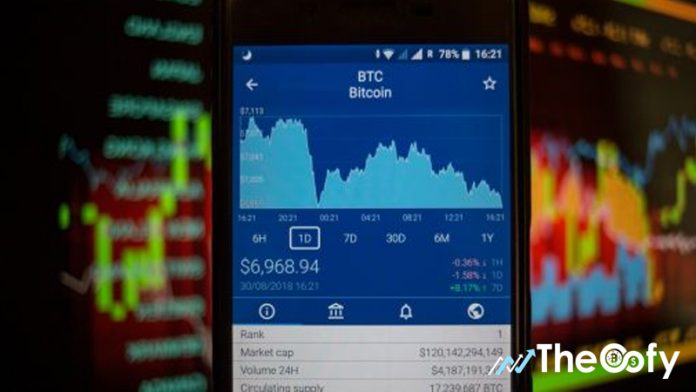At the end of the inquiry, lasting for months, conducted by New York Attorney General’s office, it has been revealed that cryptocurrency exchanges cannot avoid possible manipulations and protect customers enough.
On Tuesday, a 32-page report was launched and crypto trading issues such as “transparency, fairness, and security” were emphasized by the attorney general’s office.
According to “Virtual Markets Integrity Report”, unfair market practices cannot be avoided regarding the exchanges.
As indicated in the report prepared by the New York State Attorney General’s office, cryptocurrency exchanges are open to manipulations and cannot protect consumers as in standard financial markets.

Within the 32-page long “Virtual Markets Integrity Report”, published on Tuesday, the cryptocurrency trading issues such as “transparency, fairness, and security” were mentioned. According to the resulting report, the investors are not protected enough regarding the exchanges.
The report published by Attorney General Barbara Underwood’s office says “The industry has yet to implement serious market surveillance capacities, akin to those of traditional trading venues, to detect and punish suspicious trading activity.”
In April, an investigation was initiated by the former Attorney General Eric Schneiderman to address the questions about transparency and consumer protection in digital currency exchanges. The requests were met in ten exchanges. On the other hand, four did not, and one of them was Kraken, of which CEO, Jesse Powell, was tweeting that AG’s scrutiny was “tone deaf” and “insulting” in April.
Somebody has to say what everybody's actually thinking about the NYAG's inquiry. The placative kowtowing toward this kind of abuse sends the message that it's ok. It's not ok. It's insulting. https://t.co/sta9VuXPK1 pic.twitter.com/4Jg66bia1I
— Jesse Powell (@jespow) April 18, 2018
The attorney general’s office announced that the license necessary for the exchanges, BitLicense, is not acquired by Kraken, Binance, and Gate.io, these tend to offer services to New Yorkers and thus potentially violate the state’s virtual currency regulations.
According to the report, “In announcing the company’s decision not to participate in the Initiative, Kraken declared that market manipulation ‘doesn’t matter to most crypto traders,’ even while admitting that ‘scams are rampant’ in the industry.”
CNBC’s request for an explanation was not adressed by the three exchanges.
Bitcoin, which is the first and most widely known cryptocurrency, was launched 10 years ago by a pseudonym, Satoshi Nakamoto, who is an anonymous cryptographer. This electronic alternative to cash, which would be free from any potential control by governments or central banks, turned out to be quite speculative last year when it reached about $20,000.
Bitcoin accounts now around $6,320, and according to CoinDesk, it has lost half of its value from January forward.
Concerns on crypto market manipulation and consumer protection have been expressed over and over by U.S. regulators. These issues were identified as the essential cause bitcoin ETF blockage by the Securities and Exchange Commission that has initiated a number of investigations against fraudulent initial coin offers.
Aside from such manipulations, in this report, several topics such as conflicts of interest, security, and consumer fund protection were addressed by the attorney general’s office.
No Help At All
According to the report, in these platforms, there is no “consistent and transparent approach” to audit their virtual currency. Consequently, the customers get no help when their cryptocurrency dissappear.
As emphasized in the report, “Customers are highly exposed in the event of a hack or unauthorized withdrawal.” “There are serious questions about the scope and sufficiency of the commercial insurance that certain platforms purport to carry to cover virtual asset losses.”
Even so, the report did not accuse all exchanges for disappointing customers. In terms of “comprehensiveness in responding to the risks facing the virtual markets and fulfilling their responsibilities to customers”, there is a huge difference between platforms.
For instance, Gemini, which has been founded by online entrepreneurs Cameron Winklevoss and Tyler Winklevoss, consociated with the Nasdaq for more complex surveillance tools. The attorney general’s office was aware of at least on more platform, which is “in the process of contracting for a similar service.”
According to the report, before using a cryptocurrency exchange, any retail investor should ask themselves these eight questions.
- 1. Which security precautions were taken to prevent unauthorized access by hackers to the platform or specific customer accounts?
- 2. What are the insurance or other policies to protect customers’ integrity against virtual or fiat currency thefts?
- 3. What are the platform’s protection or other policies against unfair competition between retail investors and professional traders?
- 4. How does the platform block unauthorized or abusive traders from takings?
- 5. Are there any policies to prevent the company and its employees from disclosing confidential information to get earnings at the cost of harming consumers?
- 6. How do the customers get notified about site outages or suspensions, when the trading will be back online, and accessing their funds during such outages?
- 7. How does the platform ensure transparency and get independently audited and verified for its security, virtual and fiat accounts, and its controls?
- 8. Does the platform bother itself to be tied and registered under banking regulations or an akin regimen such as New York BitLicense regulations?




